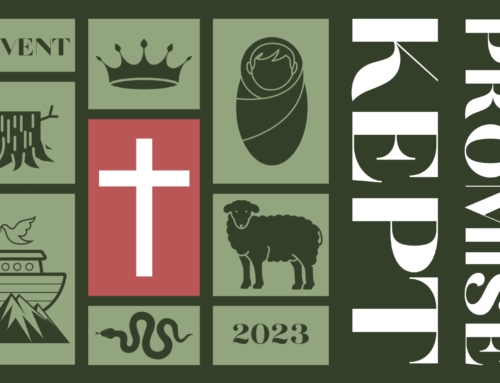Hopefully you all are reading the bible regularly in your homes. As believers in Jesus, we should all love him and his word. As the psalmist says, it should be our delight. We should love reading his word and being transformed by it. Sometimes this may be easier said than done. Much of what is in the bible is very straightforward and easy to understand. However, there are some passages that are more difficult. We should be reading prayerfully and relying on the Holy Spirit to help us understand God’s word, and some passages require more study than others if we are going to understand exactly what is being communicated.
I want to offer 6 questions (Who? What? When? Where? Why? and How?) that we can ask when reading the bible. Answering these questions will help us to come to a better understanding of those more difficult passages, but they will also help us even to understand the easier passages more fully and more consistently.
In order to keep these blog posts short enough to be read and digested in a timely manner, we will consider these questions over a few posts. This is the second. The others can be accessed below.
5. Why?
The fifth question that we need to think about and ask when we read the bible is “why?”. This question gets to the heart of the meaning of whatever passage you are reading. Why did the author write what he wrote? Why did the person speaking in the passage say what he or she said? Why did God decide to include this particular passage and these specific words in the bible? What is the purpose? What was the author trying to say—why did he write this?
Many passages in the bible are pretty straightforward and easily understood, but a some are more difficult. In 2 Peter 3;16, Peter, himself, says that there are some things in Paul’s letters that are hard to understand. So, how are we supposed to figure out the point of a difficult bible passage? When there is time, using some bible study tools can be helpful. You could use a bible dictionary or bible encyclopedia to discover some information about 1st century history, culture, customs, or etc. that may shed light on what the author is saying. When you don’t have as much time (or even when you do), noticing some things about the passage itself can help to shed light on the author’s purpose as well.
- Look for words (or ideas) that are repeated throughout the passage. In Ephesians 1:3-12, Paul refers to Jesus at least 12 times. That is more than once per verse. He doesn’t always use the same exact word. Sometimes he says Jesus, sometimes Christ. Other times he uses “the Beloved,” “he,” “him,” “the messiah,” or other words, but he refers to Jesus at least 12 times in these 10 verses. That tells us that the emphasis in this passage is that the plan that God had before the foundation of the world to save his people centers on Jesus.
- Next, look for words or ideas that are opposites. Sometimes biblical writers make their points by contrasting opposite ideas or concepts. In Galatians 5, Paul writes the famous passage about the fruit of the Spirit. The passage that comes immediately before this one is all about the fruits of the flesh. Paul is contrasting a life in submission to sin and temptation with a life in submission to the Holy spirit. In another familiar passage, Isaiah 53, Isaiah makes his point by contrasting God with people. In doing so, he shows that God is holy, people are not, yet God has taken on the position of people to provide salvation.
- Sometimes, biblical authors use a series of progressions to make their points. This is most common in poetry. In Psalm 1, the author warns against walking, standing, and sitting in the ways of the wicked. In Isaiah 40, those who trust in the Lord will soar like eagles, run and not grow weary, and walk without growing faint. In the gospels, Jesus tells a parable against the pharisees where an owner of a vineyard is not happy with his tenants. He first sends a message by the hands of a slave. He repeats with a second and a third slave. Finally, he sends his own son.
- Finally, when trying to understand the point an author is making, it is essential to pay attention to prepositions and connecting words. These words can be very small, but they are very important. The simplest of these words are “and,” “but,” and “or.” These indicate either a continuation, a contrast or distinction, or an alternative. Other words such as “for,” “to,” “against,” “over,” “however,” ‘therefore,” “so that,” “in order that,” and others are extremely important to make note of. They often help us to see and understand the connections between words, sentences, paragraphs, and who sections of books.
6. How?
The final question that you want to ask when studying the scriptures is the question of how—how do you apply this passage to our own lives? We do not want to be people who know the bible the way that we might know some piece of trivia. In fact, knowing the bible is not the point at all. The point is to put the bible into practice—it should affect the things that we believe, the things that we think, the things that we say, the things that we do.
We can help ourselves to answer this question by asking a few others:
- Is the application spelled out in the passage? Sometimes, the passage you are reading will call you to a specific (positive) action or call you to stop acting in a certain (negative) way.
- Is there a principle that is being exemplified here? Can this passage be “boiled down” to a universal/eternal principle that can then be applied to our present context?
- Can you insert yourself into the story? This can be dangerous. You should proceed with this method of application carefully. Always keep the gospel in mind when putting yourself in a story. For example, people often want to put themselves in the place of David in the story of David and Goliath. We are sometimes told that like David, we should summon the courage to face the Goliaths in our lives. A better understanding would be to put ourselves in the place of the Israelites and be reminded of how God has provided for our salvation, protection, liberation, and etc. by sending a humble king (Jesus) to defeat our enemy (sin, death, shame, etc.) on our behalf.
- Is this passage limited in some way that affects how you should apply it? Is the passage written to a specific group within the church (women, men, pastors, deacons, etc.)? Is the passage written specifically to Israel as a nation?
The point is that we want to make sure that we do not stop with knowing what the bible says and understanding it. We want to put the word into practice in our lives.
Finally, I want to make sure that these questions are a blessing to you and that you do not feel burdened by them. Please do not think of the questions in these posts as something that you have to do every time you read the bible. Don’t think that you have to sit down with a notebook and go through each question in a very programmed kind of way. For some passages, the answers to some of these questions may be more or less obvious. You may spend only a few seconds thinking through some of these questions and maybe a more substantial amount of time on others.
The hope is that thinking through and answering these questions will help us to understand the bible better and to put it into action in our lives more completely. Imagine a church full of people who study the bible even more and work even harder to understand and apply it to ourselves. Imagine a church where people know the bible even better and live the bible even more fully. Imagine the even larger impact we could have on our community and our world.
I pray that these articles would help us to become a church where this is more and more the case.




